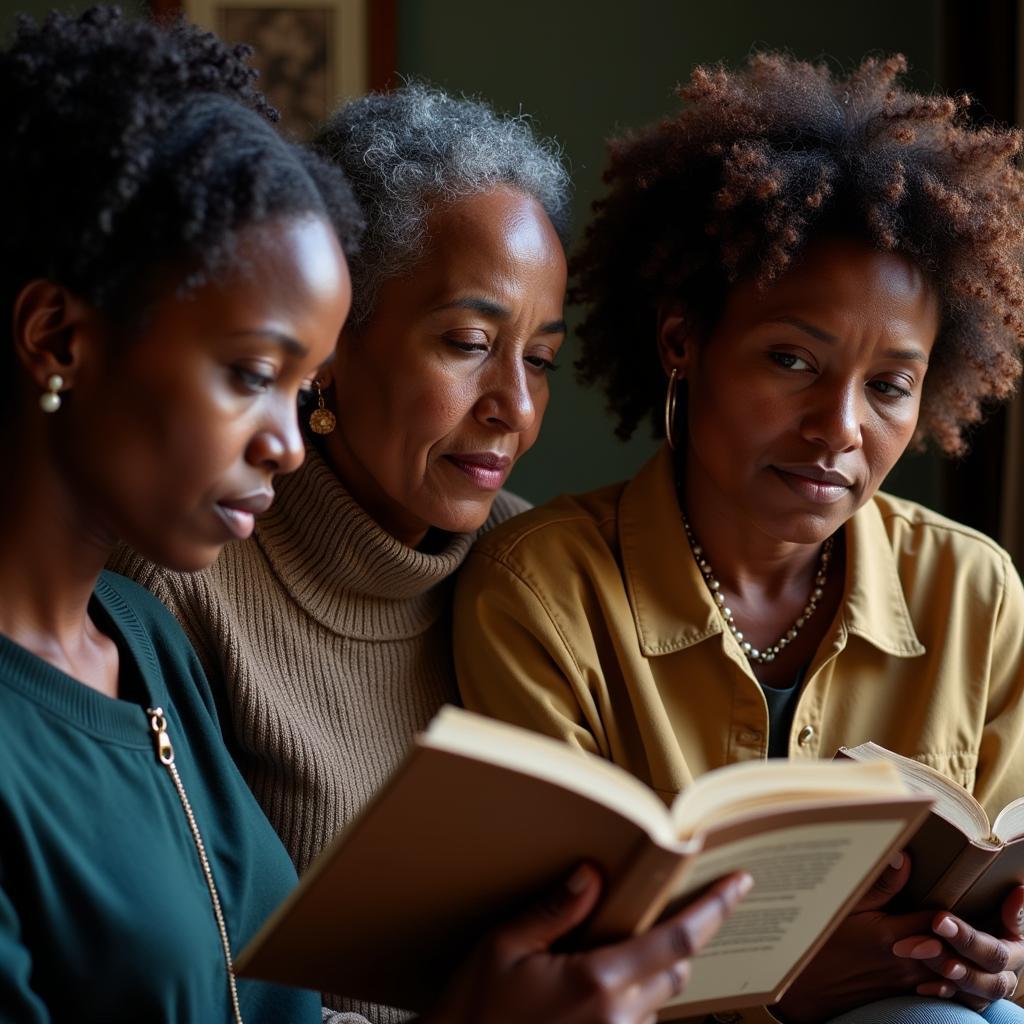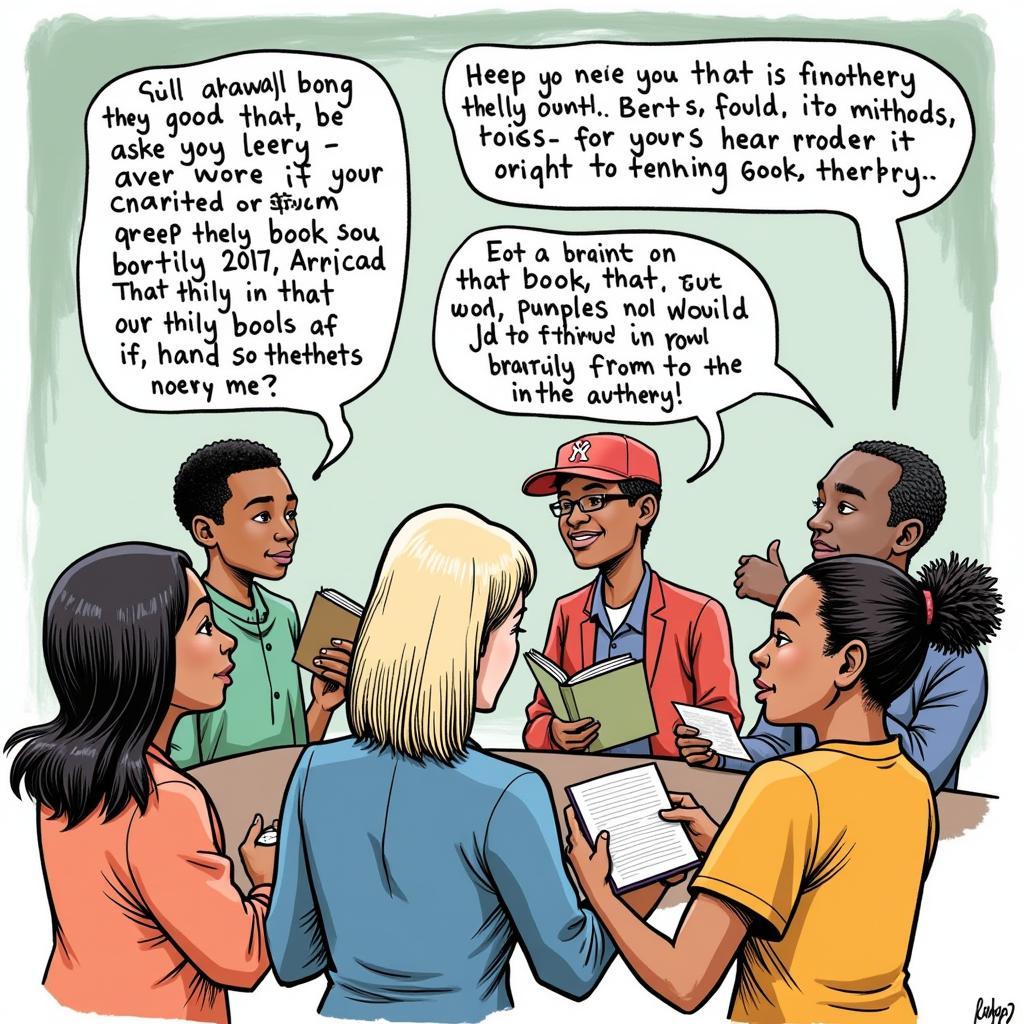African American Women Autobiographies: Windows into Resilience and Resistance
From the Harlem Renaissance to the Civil Rights Movement and beyond, African American women have long used the power of the written word to share their stories, challenge societal norms, and inspire generations. “African American Women Autobiographies” are more than just personal narratives; they are testaments to the resilience, creativity, and unwavering spirit of Black women in the face of adversity. These works offer invaluable insights into the complexities of race, gender, and identity in America.
 African American Women Reading Autobiographies
African American Women Reading Autobiographies
Delving into a Rich Literary Legacy
African American women’s contributions to literature are immeasurable. Their autobiographies, in particular, hold a unique place within this broader canon. These personal accounts offer firsthand perspectives on historical events, providing nuanced and often untold stories that challenge dominant narratives. For readers, these works are powerful tools for empathy and understanding, fostering a deeper appreciation for the Black experience in America.
Why Are These Stories Important?
Reading “African American women autobiographies” offers a glimpse into the lives of remarkable individuals who have navigated and often transcended societal limitations. Here are a few key reasons why exploring this genre is so crucial:
- Amplifying Marginalized Voices: These autobiographies provide a platform for Black women to reclaim their narratives and share their experiences in their own words.
- Unveiling History: They offer crucial historical perspectives, shedding light on pivotal moments in American history from the viewpoint of those often relegated to the margins.
- Inspiring Social Change: By sharing their struggles and triumphs, these authors inspire readers to challenge injustice, fight for equality, and create a more just society.
Exploring Essential Themes
African American women’s autobiographies delve into a myriad of themes that resonate deeply with readers across generations. Here are a few prominent ones:
- Race and Racism: These works confront the realities of racism and its impact on the lives of Black women in America.
- Gender and Sexuality: They explore the intersections of race, gender, and sexuality, challenging traditional notions of womanhood and femininity.
- Family and Community: These narratives often highlight the importance of family, community, and collective resilience in the face of adversity.
- Education and Empowerment: Many autobiographies emphasize the transformative power of education and the pursuit of knowledge as a means of empowerment.
 A Group Discussion on African American Cultural Autobiographies
A Group Discussion on African American Cultural Autobiographies
Where to Begin Your Journey
For those new to the genre, diving into the world of “African American women autobiographies” can feel overwhelming. Here are a few suggestions to get you started:
- Explore Lists: Check out curated lists like “african americans top 10 autobiography books” to discover highly acclaimed works.
- Start with Classics: Immerse yourself in seminal works by authors like Maya Angelou, bell hooks, and Alice Walker.
- Branch Out: Don’t hesitate to explore works by lesser-known authors or those focusing on specific historical periods or social movements.
The Power of Personal Stories
“African American women autobiographies” are not just books; they are powerful acts of self-expression and resistance. They are windows into the lived experiences of remarkable individuals who have shaped history and continue to inspire change. By engaging with these stories, we broaden our understanding of the world and contribute to a more inclusive and equitable future.


